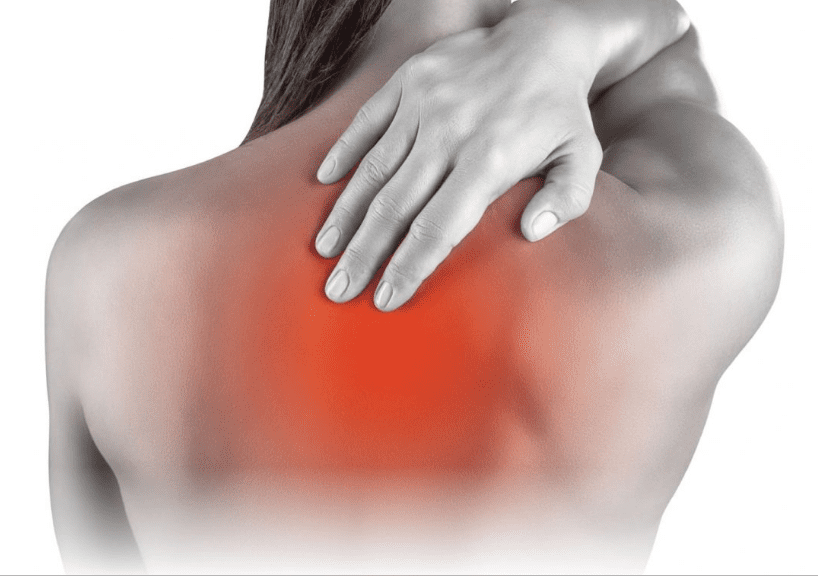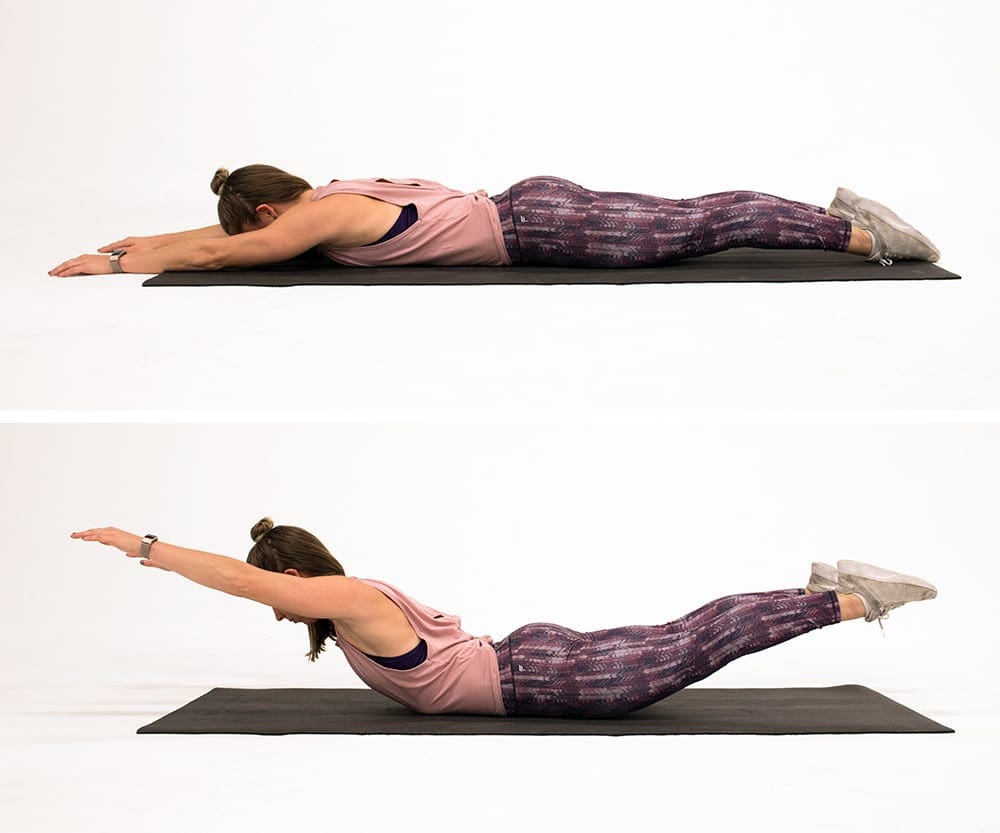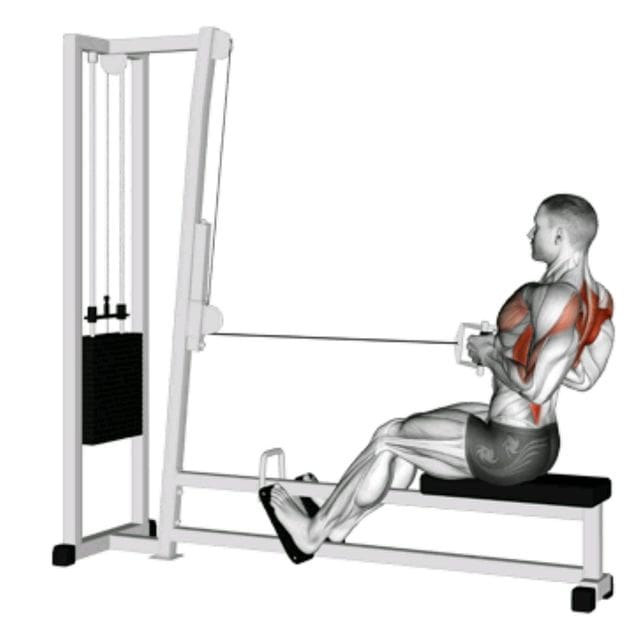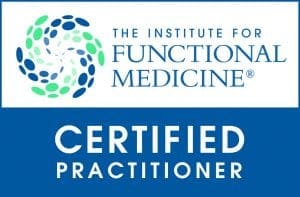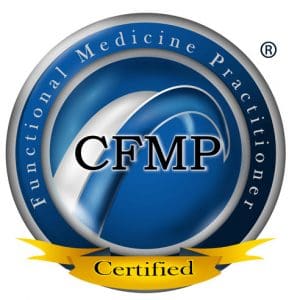Table of Contents
Introduction
The various muscles and ligaments that encompass the back help protect the spine’s thoracic region. The spine has three sections: cervical, thoracic, and lumbar, which assist the body with bending, turning, and twisting. For the thoracic spine, various muscles like the rhomboid, trapezoid, and other superficial muscles provide functionality to the scapula or shoulder blades to stabilize the ribcage. When the body succumbs to injuries or traumatic forces, it can develop myofascial pain syndrome associated with upper back pain. Upper back pain can lead to unwanted symptoms affecting their quality of life. Fortunately, various exercises target the upper portion of the back and can strengthen multiple muscles from injuries. Today’s article looks at the effects of upper back pain in the body and shows a few stretches and exercises that can support the various muscle groups in the upper back region. We refer our patients to certified providers that incorporate techniques and multiple therapies for many individuals suffering from upper back pain and its correlating symptoms that can affect the musculoskeletal system in the neck, shoulders, and thoracic region of the spine. We encourage and appreciate each patient by referring them to associated medical providers based on their diagnosis when it is appropriate. We understand that education is a fantastic way when asking our providers intricated questions at the patient’s request and understanding. Dr. Jimenez, D.C., only utilizes this information as an educational service. Disclaimer
The Effects Of Upper Back Pain In The Body
Have you been experiencing stiffness around or near your shoulder blades? Do you feel muscle strain when you are rotating your shoulders? Or does it hurt when you stretch your upper back in the morning? Many of these issues are signs and symptoms of upper back pain. Studies reveal that back pain is one of the most common complaints many individuals would go for emergency care. Back pain can affect the different regions in the back and cause unwanted symptoms in various areas in the upper back. Additional studies mentioned that persistent pain in the thoracic region could cause hyper-sensitization of the intercoastal nerves that mimic other conditions affecting the back. Some of the causes and effects that can lead to the development of upper back pain include:
- Poor posture
- Improper lifting
- Traumatic events or injuries
- Chronic diseases (Osteoporosis, Scoliosis, Kyphosis)
When this happens, it can lead to overlapping conditions that mimic other issues and, if not treated right away, leave individuals with chronic disabling symptoms that correlate with upper back pain.
Upper Back Pain Relief-Video
Have you been experiencing stiffness in your shoulders or neck? Do you feel aches and pains when stretching your arms? Or what about feeling muscle strain when lifting a heavy object? Many of these factors correlate with upper back pain affecting the thoracic spine region. When this happens, it can lead to overlapping risk profiles that can develop into different issues that can cause even more pain to the body. There are various ways to prevent upper back pain from causing further issues to the individual and can relieve the pain associated with it. Many people would go to chiropractic therapy to have their spine re-aligned to bring adequate relief or incorporate upper back exercises and stretches to relieve tension accumulated in the neck and shoulder regions. The video above explains how stretches work for different muscle regions in the upper back and provide relief to the thoracic spine.
Exercises For Upper Back Pain
Regarding the upper back, it is important to understand that incorporating various exercises that target the thoracic region can cause prolonged injuries. Studies reveal that different back exercises focus not only on the back but the shoulders, arms, chest, core, and hips providing stability, balance, and coordination to the individual. This allows the muscles in the back region to improve strength and endurance over time when a person continues to work out. More studies reveal that protocols like the McKenzie back exercise are effective programs to treat various musculoskeletal conditions that can cause pain in the back. Many physical therapists use this protocol on their patients to relieve back pain and help improve their muscular structure to have better posture.
Warm Up
Just like any individual that is starting to get back to their health and wellness through exercise, the most important step that anyone has to do is warming up their muscles before getting into a workout. Warming up each muscle group can prevent future injuries and increase blood flow before starting the exercise. Many individuals would incorporate stretches and foam rolling for 5-10 minutes to ensure that each muscle is ready to perform with maximum effort.
Exercises
After the body is warmed up, it is time to begin the exercise regime. Many different exercise movements target each muscle group and help build muscle mass and improve functionality. It is important to build up momentum when it comes to working out. Starting slowly with minimum reps and sets is important to ensure the exercise is done correctly. Afterward, the individual can increase the workout reps and go with a heavier weight. Below are some of the exercise routines that are suited for the upper back.
Superman
- Lie on your stomach and extend your arms above the head
- Keep neck in a neutral position and lift legs and arms off the floor at the same time
- Make sure to use the back and glutes to lift
- Briefly pause at the top, then return to starting position
- Complete three sets of 10 reps
This exercise helps strengthen the spine and surrounding muscles to support the spine and reduce any future injuries from upper back pain.
Reverse Dumbbell Flies
- Grab light weighted dumbbells
- Hinge at the waist at 45 degrees while standing
- Make sure the arms are hanging down with the weights
- Keep the neck in a neutral position while gazing down
- Lift the arms (with the dumbbells) out to the side and upwards
- Squeeze the shoulders together at the top during this movement
- Complete three sets of 8-12 reps
This exercise is excellent for strengthening the muscles that surround the shoulder and upper back.
Rows
- Use a resistance band or a light weighted dumbbell.
- For the resistance band, affix the band to a stable surface above eye level. For the light weighted dumbbells, extend the arms in front of the body above eye level.
- Use an overhead grip when holding the resistance band handles and the light weighted dumbbells.
- Pull resistance bands or dumbbells toward the face.
- Flare out the upper arms to the sides
- Squeeze the shoulders together
- Pause for a bit and then return to starting position
- Complete three sets of 12 reps
This exercise helps strengthen the shoulder muscles and prevent future injuries from occurring in the upper back.
Conclusion
Some various muscles and ligaments encompass the back and help protect the spine’s thoracic region. These muscles help with the stabilization of the ribcage and help provide the functionality to the upper back. When multiple factors cause traumatic injuries to the upper back, it can lead to pain-like symptoms that can cause overlapping features and affect a person’s quality of life. Luckily, various exercises target the upper back and surrounding muscle groups. Each activity targets all the muscles in the upper back and allows a person to regain health and wellness without constant pain.
References
Atalay, Erdem, et al. “Effect of Upper-Extremity Strengthening Exercises on the Lumbar Strength, Disability and Pain of Patients with Chronic Low Back Pain: A Randomized Controlled Study.” Journal of Sports Science & Medicine, U.S. National Library of Medicine, 1 Dec. 2017, www.ncbi.nlm.nih.gov/pmc/articles/PMC5721192/.
Casiano, Vincent E, et al. “Back Pain – Statpearls – NCBI Bookshelf.” In: StatPearls [Internet]. Treasure Island (FL), StatPearls Publishing, 4 Sept. 2022, www.ncbi.nlm.nih.gov/books/NBK538173/.
Louw, Adriaan, and Stephen G Schmidt. “Chronic Pain and the Thoracic Spine.” The Journal of Manual & Manipulative Therapy, U.S. National Library of Medicine, July 2015, www.ncbi.nlm.nih.gov/pmc/articles/PMC4534852/.
Mann, Steven J, et al. “McKenzie Back Exercises – Statpearls – NCBI Bookshelf.” In: StatPearls [Internet]. Treasure Island (FL), StatPearls Publishing, 4 July 2022, www.ncbi.nlm.nih.gov/books/NBK539720/.
Disclaimer
General Disclaimer
Professional Scope of Practice *
The information herein on "Exercises For Upper Back Pain" is not intended to replace a one-on-one relationship with a qualified health care professional or licensed physician and is not medical advice. We encourage you to make healthcare decisions based on your research and partnership with a qualified healthcare professional.
Blog Information & Scope Discussions
Welcome to El Paso's Premier Wellness and Injury Care Clinic wellness blog, where Dr. Alex Jimenez, DC, FNP-C, a board-certified Family Practice Nurse Practitioner (FNP-C) and Chiropractor (DC), presents insights on how our team is dedicated to holistic healing and personalized care. Our practice aligns with evidence-based treatment protocols inspired by integrative medicine principles, similar to those found on dralexjimenez.com, focusing on restoring health naturally for patients of all ages.
Welcome to El Paso's Premier Wellness and Injury Care Clinic & wellness blog, where Dr. Alex Jimenez, DC, FNP-C, a board-certified Family Practice Nurse Practitioner (FNP-C) and Chiropractor (DC), presents insights on how our team is dedicated to holistic healing and personalized care. Our practice aligns with evidence-based treatment protocols inspired by integrative medicine principles, similar to those found on dralexjimenez.com, focusing on restoring health naturally for patients of all ages.
Our areas of chiropractic practice include Wellness & Nutrition, Chronic Pain, Personal Injury, Auto Accident Care, Work Injuries, Back Injury, Low Back Pain, Neck Pain, Migraine Headaches, Sports Injuries, Severe Sciatica, Scoliosis, Complex Herniated Discs, Fibromyalgia, Chronic Pain, Complex Injuries, Stress Management, Functional Medicine Treatments, and in-scope care protocols.
Our information scope is limited to chiropractic, musculoskeletal, physical medicine, wellness, contributing etiological viscerosomatic disturbances within clinical presentations, associated somato-visceral reflex clinical dynamics, subluxation complexes, sensitive health issues, and functional medicine articles, topics, and discussions.
We provide and present clinical collaboration with specialists from various disciplines. Each specialist is governed by their professional scope of practice and their jurisdiction of licensure. We use functional health & wellness protocols to treat and support care for the injuries or disorders of the musculoskeletal system.
Our videos, posts, topics, subjects, and insights cover clinical matters, issues, and topics that relate to and directly or indirectly support our clinical scope of practice.*
Our office has reasonably attempted to provide supportive citations and has identified the relevant research studies or studies supporting our posts. We provide copies of supporting research studies available to regulatory boards and the public upon request.
We understand that we cover matters that require an additional explanation of how they may assist in a particular care plan or treatment protocol; therefore, to discuss the subject matter above further, please feel free to ask Dr. Alex Jimenez, DC, APRN, FNP-BC, or contact us at 915-850-0900.
We are here to help you and your family.
Blessings
Dr. Alex Jimenez DC, MSACP, APRN, FNP-BC*, CCST, IFMCP, CFMP, ATN
email: coach@elpasofunctionalmedicine.com
Licensed as a Doctor of Chiropractic (DC) in Texas & New Mexico*
Texas DC License # TX5807
New Mexico DC License # NM-DC2182
Licensed as a Registered Nurse (RN*) in Texas & Multistate
Texas RN License # 1191402
ANCC FNP-BC: Board Certified Nurse Practitioner*
Compact Status: Multi-State License: Authorized to Practice in 40 States*
Graduate with Honors: ICHS: MSN-FNP (Family Nurse Practitioner Program)
Degree Granted. Master's in Family Practice MSN Diploma (Cum Laude)
Dr. Alex Jimenez, DC, APRN, FNP-BC*, CFMP, IFMCP, ATN, CCST
My Digital Business Card







